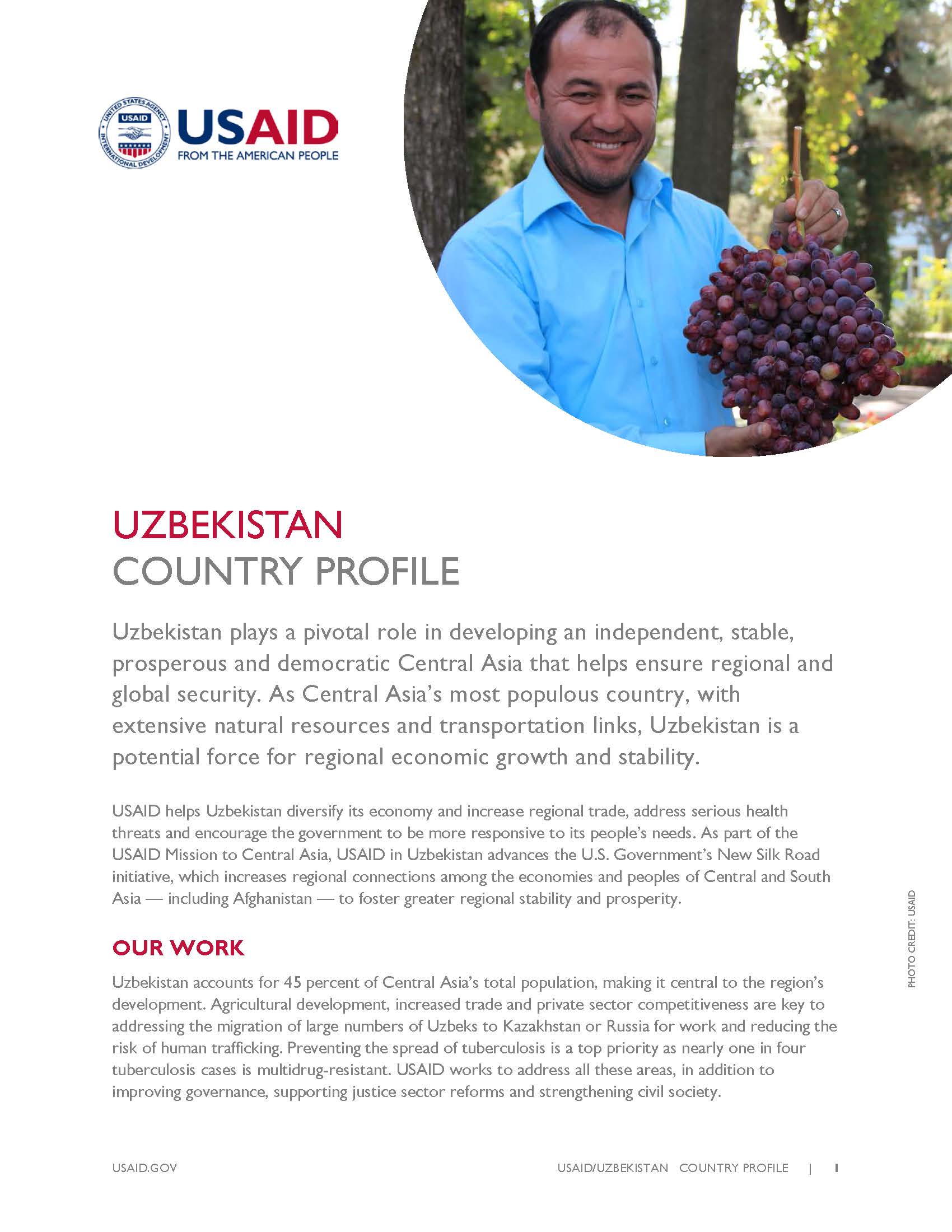Uzbekistan accounts for 45 percent of Central Asia’s total population, making it central to the region’s development. Agricultural development, increased trade and private sector competitiveness are key to addressing the migration of large numbers of Uzbeks to Kazakhstan or Russia for work and reducing the risk of human trafficking. Preventing the spread of tuberculosis is a top priority as nearly one in four tuberculosis cases is multidrug-resistant. USAID works to address all these areas, in addition to improving governance, supporting justice sector reforms and strengthening civil society.
Uzbekistan Country Profile ![]() (pdf - 192k)
(pdf - 192k)
Economic Growth and Agriculture
Cotton and wheat have been the country’s primary crops for generations. To diversify the agriculture sector toward higher-value commodities, USAID partners with the government on horticulture, viniculture, agro-processing, produce packaging and quality certification. USAID also organizes forums that facilitate trade within the region and to Europe. Since 2015, USAID has facilitated more than $400 million in letters of intent to conduct business between Uzbek entrepreneurs and foreign buyers, with millions in business contracts already signed. This translates to roughly a 100-to-1 return on investment, with $100 in new trade created for every U.S. dollar invested.
Democracy and Governance
USAID continues to encourage the Uzbek government to further reform the judicial sector and improve civil society ties. USAID supports these efforts by helping civil society engage the government on human trafficking, labor migration and judicial reforms. An e-court system piloted by USAID in the capital’s civil courts allows for quick case filing, significantly reducing the time required to publish court decisions.
Health
To help the country more effectively combat increasing rates of multidrug-resistant tuberculosis (MDR-TB) and HIV/AIDS, USAID provides training and equipment for better and more timely laboratory diagnostics and electronic record keeping. In 2015, USAID provided American rapid testing machines and TB case management systems that increased the number of people tested for TB by 342 percent, thus helping to close the gap on the number of undiagnosed TB infections. USAID works with the Ministry of Health to strengthen the monitoring and evaluation capacity of Uzbekistan’s National TB Program, enabling the Ministry to use more accurate data to advise health policy and practices. USAID has also worked with the Ministry in its effort to reduce hospital-based TB transmissions.









Comment
Make a general inquiry or suggest an improvement.